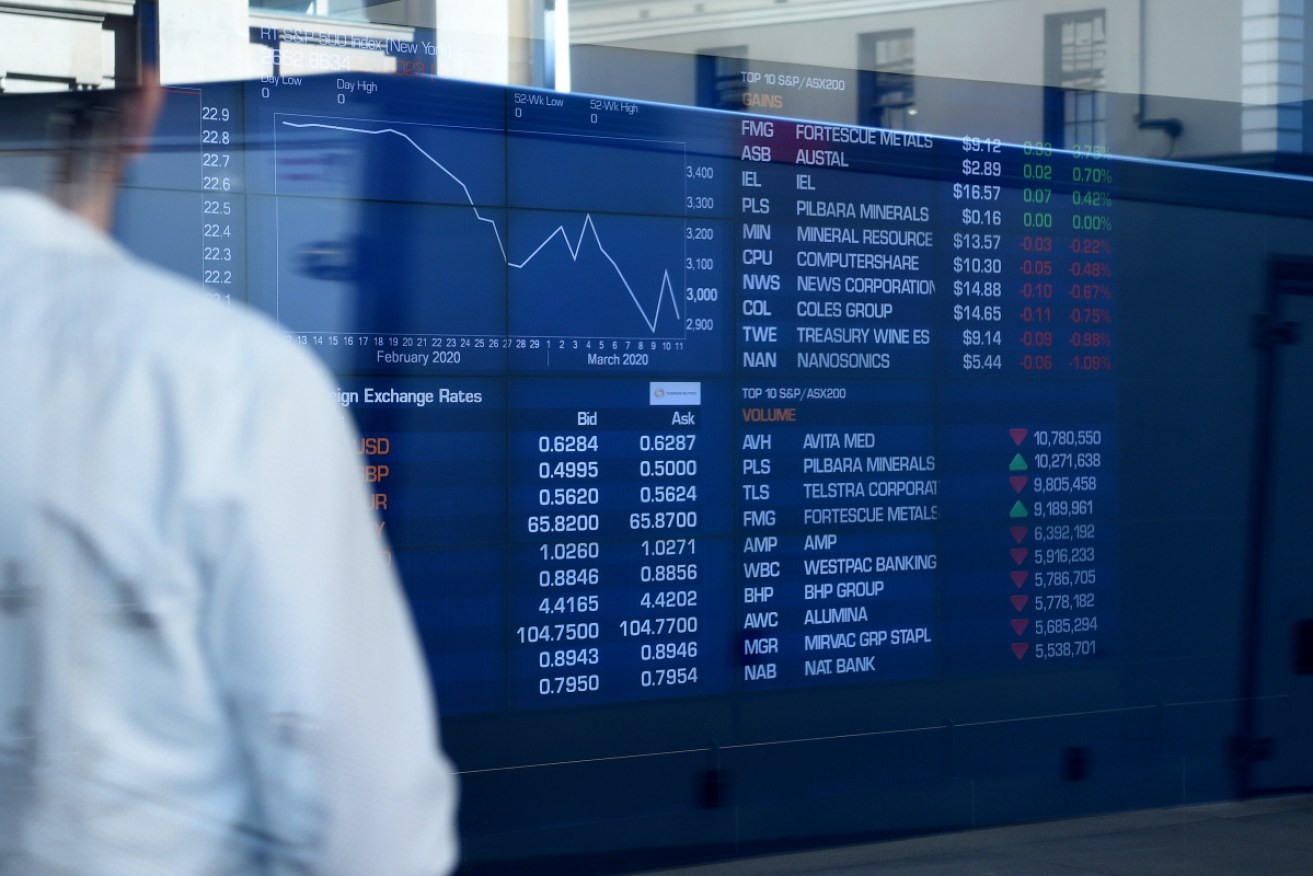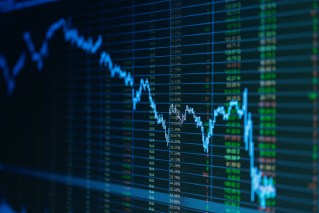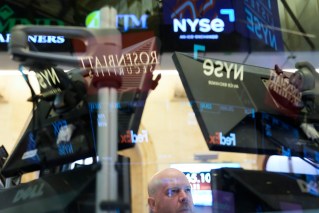Plummeting ASX loses $100 billion, ASIC restricts share trades


Shortly after the open, the ASX was down 7.12 per cent. Photo: AAP
The Australian stock market has slumped at the start of the new week amid coronavirus fears, as US stock market futures indicate heavy falls ahead on Wall Street.
By 11.25am (AEDT), the ASX 200 was down 5 per cent to 5262 points. The All Ordinaries had also lost 5 per cent.
The major indices were off their early lows, which saw more than $100 billion in value wiped off in the first half an hour of trade.
The market finished the down down 9.7 per cent.
Energy stocks including Oil Search (-12.3 per cent) and Santos (-10 per cent) have been particularly hard hit in the broad-based sell-off.
Travel-related companies were sharply lower following the announcement of forced self-isolation for all people entering Australia from overseas, including Webjet (-13.9 per cent), Corporate Travel Management (-12.2 per cent), Flight Centre (-12.7 per cent), Sydney Airport (-13.9 per cent) and Virgin Australia (-8.9 per cent).
A handful of stocks were in positive territory, including supermarket giants Coles (+3.7 per cent) and Woolworths (+1.9 per cent), which have faced a surge in demand as the coronavirus outbreak escalates, prompting Woolworths to introduce a priority shopping hour for concession card holders.
ASIC limits share trades amid record volumes
The corporate regulator has put new limits on the number of shares trades large firms can make, as it deals with a “significant backlog of work” due to a surge in stock market volumes.
“Australian equity markets have seen record trading volumes in the last two weeks,” the Australian Securities and Investments Commission said in a statement.
“In addition to increasing volumes, Australia’s equity markets have seen exponential increases in the number of trades executed, with a particularly large increase in trades last Friday.”
The regulator said there was no disruption to trade on Friday, but there was unfinished work for the stock exchanges and traders to deal with over the weekend.
“If the number of trades executed continues to increase, it will put strain on the processing and risk management capabilities of market infrastructure and market participants,” ASIC said.
Until further notice large stock-broking firms and institutions will now be required to limit the number of trades they make each day by up to 25 per cent below the number of trades executed on Friday.
“We do not expect these limits to impact the ability of retail consumers to execute trades,” the regulator said.
-with agencies








